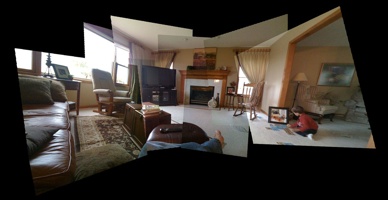CALL FOR PRINT PROCEEDINGS
?Creating a Reference Renaissance: Current & Future Trends (title tentative)?
Edited by Marie L. Radford & R. David Lankes
To be published in 2009 by: Neal-Schuman Publishers
?This book will include the best research papers and reports from the field which have originated in presentations from the Reference Renaissance: Current & Future Trends conference, held August 4-5, 2008 in Denver, CO (
http://www.bcr.org/referencerenaissance/).
All conference presenters are invited to submit research papers and reports from the field which will be peer reviewed for selection by the book’s two editors (Radford and Lankes) with the help of a selection committee recruited from members of the conference program planning committee.
Contributed papers of two types are sought.
- Current Research in Reference. The first section of the print proceedings will be composed of chapters on recent research in reference. These will be drawn from the best of the submissions from the conference research papers and will be peer reviewed. Submissions for these chapters should be approximately 20-25 pages in length (12 pt type, double spaced) and should include the following:
Abstract (250 words)
Title
Research Problem
Significance of Problem
Literature Review
Method of Data Collection
Method of Analysis
Results
Discussion of Results
Implications for Practice
Bibliography of Cited References
Biographical sketches for each author (Approximately 300 words each)
- Current Reference Initiatives – Reports from the Field. The second section of the print proceedings will feature “Reports from the Field” that describe innovative approaches to traditional as well as virtual reference initiatives. Submissions for these chapters should be approximately 10-15 pages in length (12 pt type, double spaced) and should include the following:
Title
Abstract (250 words)
Description of library context (e.g., type of library, users, any relevant history, etc.)
Detailed description of reference initiative. Sufficient detail so that others can replicate the initiative at their institution if desired.
Assessment of initiative (or planned assessment)
Bibliography of Cited References, Websites & Publications that discuss similar initiatives.
Biographical sketches for each author (Approximately 300 words each)
Paper Submission Instructions
All contributed papers for both types of chapters should include author(s) name, job title, institution, address, phone, fax, and e-mail address. Contributions should be in Word doc or docx format. Please indicate whether you are submitting a type 1 (Research Paper) or type 2 (Report from the Field) contribution. E-mail all submissions to: Marie L. Radford ([email protected]).
?
Deadlines
?Completed Papers Due: November 7, 2008?Notification of Acceptance (with suggested revisions): February 1, 2009
Final Revisions Due Back to Editors: March 15, 2009?Book to be published in 2009???


